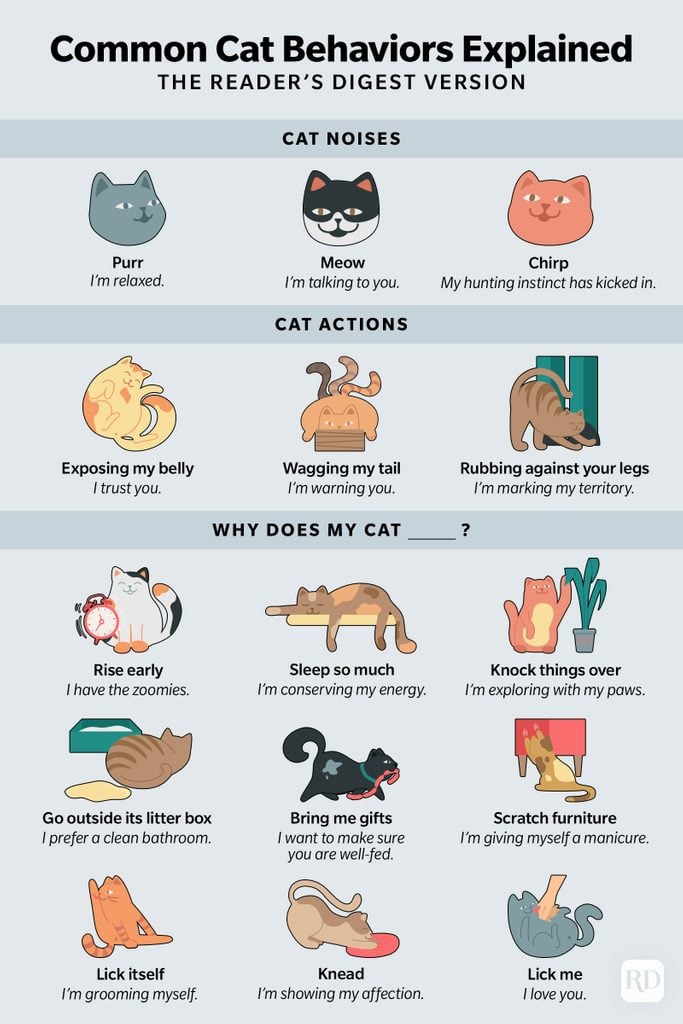Click Info Track: Your Daily Dose of Insights
Stay updated with the latest trends and information across various topics.
Decoding the Feline Mind: Why Your Cat Thinks It's in Charge
Unravel the mystery of your cat's behavior! Discover why your feline thinks it's the boss and what that means for your relationship.
Understanding Cat Behavior: The Psychology Behind Feline Independence
Understanding Cat Behavior requires delving into the unique psychology that shapes their independence. Unlike dogs, cats are solitary hunters by nature, which influences their behavior. This instinctive trait contributes to their self-reliant attitude, making them appear aloof or detached at times. According to the ASPCA, these traits are survival mechanisms that have been ingrained in felines over thousands of years. As a result, your cat may prefer to explore and play alone rather than seek continuous companionship.
Additionally, feline independence can be linked to their territorial instincts. Cats are territorial creatures and often establish their own safe spaces within your home where they feel comfortable. They tend to have a strong sense of ownership and may exhibit behaviors such as marking their territory or guarding their favorite resting spots. Understanding this behavior can help cat owners provide a more enriching environment for their pets. For more insights on cat behavior and psychology, visit The Humane Society.

The Playful Predator: Why Your Cat Might Think It's the Boss
Cats have a fascinating way of viewing their world, often positioning themselves as the playful predator in the home. This behavior is rooted in their natural instincts, where they embody the role of a hunter, even when they are safely curled up on a sofa. Their playful antics, whether it's pouncing on a toy mouse or stalking your feet, are all part of a deeply ingrained hunting instinct. According to research from the Animal Planet, these playful behaviors also serve as a form of exercise and mental stimulation, helping domesticated cats stay sharp and agile. Understanding this aspect of cat behavior reveals why they may assert themselves as the 'boss' of the household.
Moreover, cats often exhibit dominance behaviors, which can be misconstrued as them believing they are in charge. This can include claiming territory, demanding attention on their terms, and even engaging in gentle (or not-so-gentle) play aggression. Interestingly, studies highlight that this perception of being 'the boss' is often reinforced by their human companions who unintentionally cater to their whims. As noted in an article by CatTime, understanding your cat's playful predatory nature can guide owners to foster a balanced relationship, ensuring that while they enjoy their cats' playful side, they appropriately maintain their role as the caregivers.
Top Signs Your Cat Believes It's in Charge: Insights into Feline Leadership
Cats may appear to be independent creatures, but their behavior often reveals a strong sense of leadership. One of the top signs your cat believes it's in charge is its tendency to assert its presence in high places, such as countertops or bookcases. When your feline friend climbs to the highest perch in your home, it's not just seeking a cozy spot; it's positioning itself as the overseer of its domain. This natural instinct, rooted in their evolutionary background as hunters, emphasizes their need to survey their territory. As explained by the ASPCA, this behavior can be a sign of confidence and authority within your household.
Another notable indication of feline leadership is when your cat engages in dominant behaviors, such as head-butting or rubbing against you. These actions are not just affectionate; they signal that your cat is marking you as part of its territory. Additionally, if your cat tends to initiate playtime or demands attention at its convenience, it showcases their understanding of their social position and decision-making power within the home. To learn more about interpreting your cat's behavior, check out this insightful guide from The Humane Society.